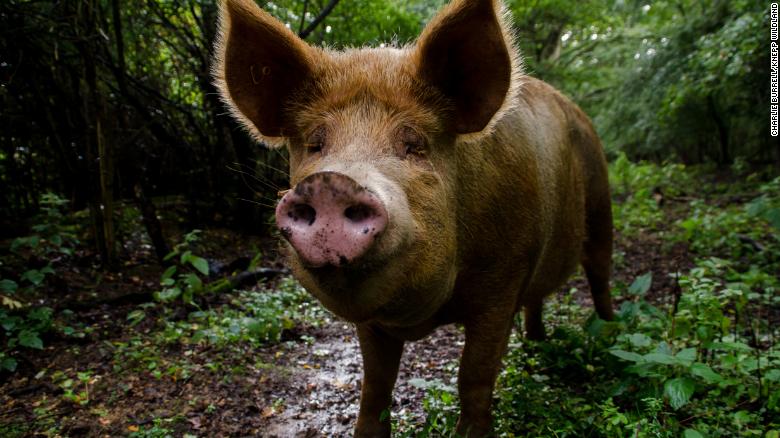During the spring and summer months, the birdsong on Knepp estate is a glorious cacophony of sound.
Walking through the scrubland of this 3,500-acre estate in West Sussex in the south of England, it’s hard to believe the tangled thickets and rugged pastures were once orderly arable fields.
The estate, which includes a 19th century castle, has belonged to the Burrell family for over 200 years. Charlie Burrell inherited it in 1985, when he was just 21.
“I came out of agricultural college incredibly enthusiastic about farming,” he says. “We’d been taught that conventional farming can work.”
But by the late 1990s, with the farm producing low yields and costs rising, the estate was facing serious financial trouble.
Burrell realized that the farm occupied “very poor agricultural land” and was destined never to produce high yields.
“I got to the point when I just felt that I couldn’t go on, because we actually were beginning to lose serious money,” says Burrell. “I needed to change and to change radically.”
Burrell and his wife, Isabella Tree, decided to turn to nature for a solution and in 2001, set about “rewilding” the estate. Knepp is now home to an astonishing array of biodiversity and has become a celebrated conservation success story, attracting many rare species and transforming the landscape from English country farm to untamed wilderness.
“We were living in a biological desert,” says Tree. “Now, ecologists are blown away all the time by just the amount of life here.”
Read the whole article by Hazel Pfeifer in CNN.
